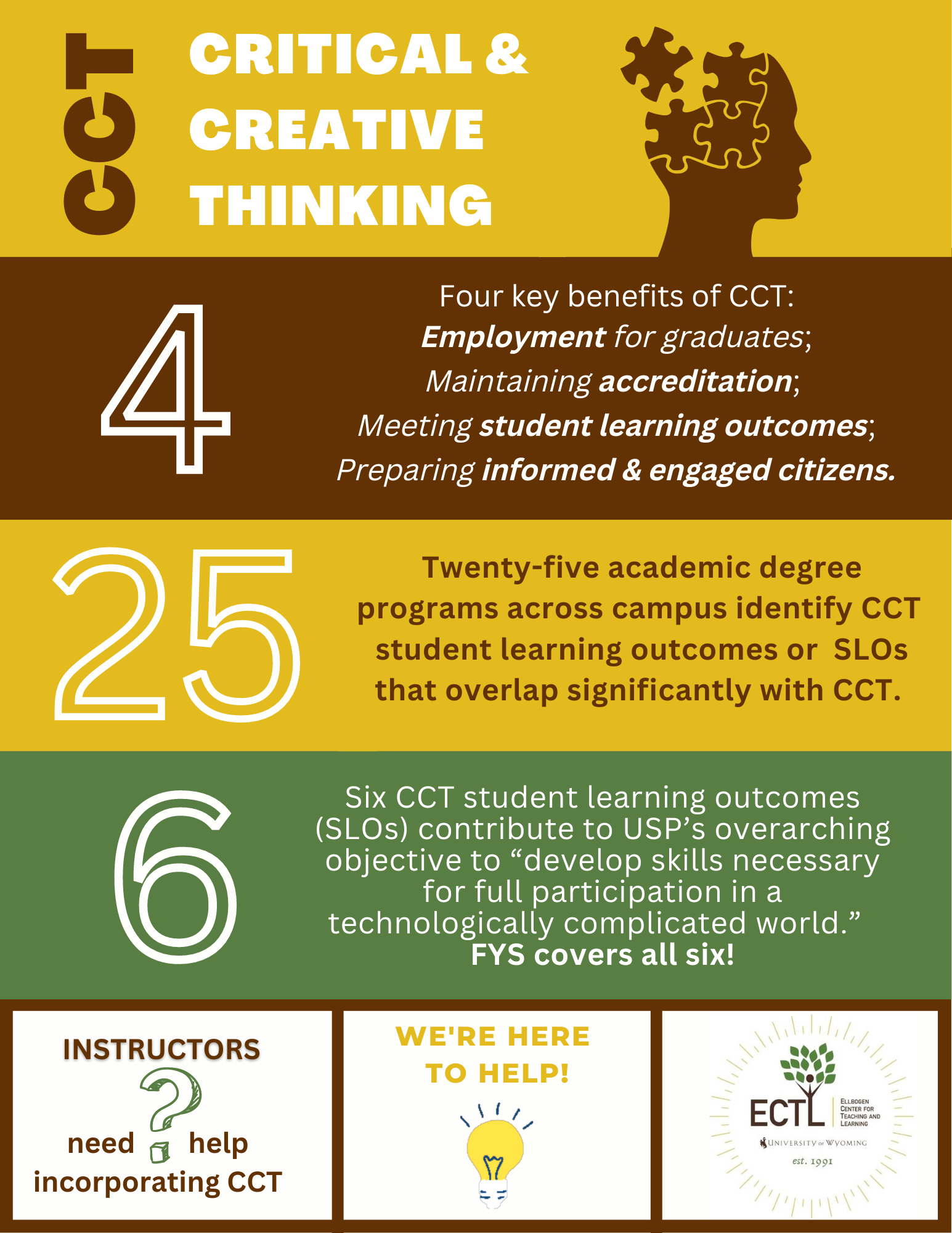Most courses at UW, from USP to disciplinary, undergraduate to graduate, include learning
outcomes focused on critical and creative thinking. Yet these skills and characteristics
can vary significantly by context. Partnering with instructors throughout the university,
the Critical and Creative Thinking (CCT) Division aims to facilitate the inclusion
of effective critical and creative thinking pedagogies throughout the undergraduate
and graduate curricula.

